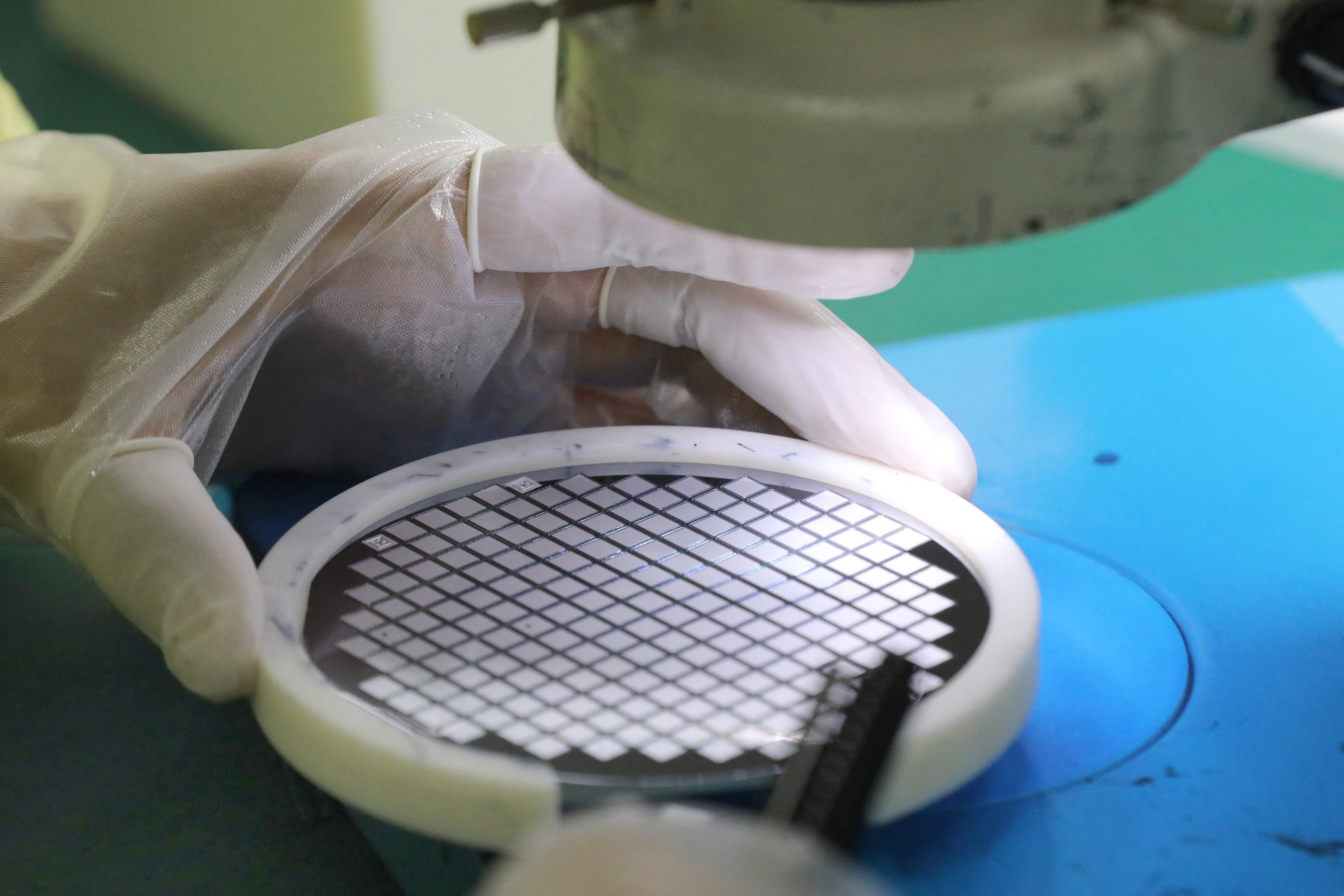US Senate passes sweeping Bill to address China tech threat
Sign up now: Get ST's newsletters delivered to your inbox

The legislation is intended to boost the ability of the US to compete with Chinese technology.
PHOTO: AFP
WASHINGTON (BLOOMBERG, REUTERS) - The United States Senate on Tuesday (June 8) voted 68-32 to approve a sweeping package of legislation intended to boost the country's ability to compete with Chinese technology, as Congress increasingly seeks to take a tough line against Beijing.
The bipartisan legislation authorises US$190 billion (S$251 billion) in spending, much of it aimed at increased research and development at universities and other institutions.
It also includes US$52 billion in emergency outlays to help domestic manufacturers of semiconductors expand production, a provision that gained new urgency with a global shortage of chips that has idled US automotive plants and disrupted the production of consumer electronics.
The Bill must also pass the House of Representatives to be sent to the White House for President Joe Biden to sign into law.
"When all is said and done, the Bill will go down as one of the most important things this Chamber has done in a very long time," Senate Majority Leader Chuck Schumer said on the Senate floor ahead of the vote.
"Whoever wins the race to the technologies of the future is going to be the global economic leader - with profound consequences for foreign policy and national security as well."
Despite the broad support in the Senate and an endorsement from President Biden's administration, the Bill's fate in the House is uncertain.
House leaders have not publicly committed to acting on the Senate Bill or set out a course of action beyond the House Science Committee considering its own plan for revamping the National Science Foundation.
However, Mr Schumer said he has talked with House Speaker Nancy Pelosi and House Science Committee chairman Eddie Bernice Johnson about the approach taken in the Lower Chamber. He said the Senate Bill, after various amendments, is now closer to what the House is working on.
"It's in President Biden's agenda and I'm quite certain that we will get a really good product on the President's desk," Mr Schumer said.
Mr Schumer and Senator Todd Young, an Indiana Republican, were joint sponsors of the base of the legislation, focused on escalating federal support for research into innovations in technology and manufacturing.
In a little more than a month since its introduction, lawmakers have debated a slew of amendments, as many sought to attach their own China-focused measures.
Mr Schumer combined his and Mr Young's original Endless Frontier Act - named after a seminal 1945 report that led to the creation of the National Science Foundation - with legislation from the Foreign Relations Committee, Banking Committee and the Homeland Security and Governmental Affairs Committee, among others.
It mirrors Mr Biden's call to address a long slide in federal government spending on research and development. Last year, it amounted to 0.7 per cent of gross domestic product (GDP), according to the National Science Foundation - a ratio flattered in part by the hit to GDP from the pandemic.
R&D spending peaked at 2.2 per cent of GDP in 1964 and was followed by decades of breakthroughs, including the moon landing, mapping the human genome and developing the Internet.
Also added to the new Bill was a separate initiative that provides US$52 billion in incentives and grant programmes to bolster domestic semiconductor manufacturing, sought by Republican senators John Cornyn of Texas and Tom Cotton of Arkansas and Democrats Mark Kelly of Arizona and Mark Warner of Virginia.
China's parliament expressed indignation and opposition on Wednesday to the US Bill, the official Xinhua news agency said.
In a statement, the foreign affairs committee of the National People's Congress said the bill displayed a Cold War mentality, smearing China's domestic and foreign policies and interfering in its internal affairs, the agency said.
The move was cheered by those in the US industry, however, following months of complaints from manufacturers that a semiconductor shortage was hampering the delivery of everything from consumer electronic devices to pickup trucks.
"Semiconductors form the nerve centre of America's economy, national security and critical infrastructure," said Mr John Neuffer, the president and chief executive of the Semiconductor Industry Association. "We look forward to working with leaders in the administration and Congress to swiftly enact needed federal investments in chip technology to help ensure more of the chips our country needs are researched, designed and manufactured on US shores."
That money, along with another US$2 billion for related programmes, would be available upon the law's passage.
The other spending in the Bill would be subject to the appropriations process.
An amendment from Senator Ben Sasse, a Republican from Nebraska, would also authorise an additional US$17.5 billion for the Defence Advanced Research Projects Agency - or Darpa - over a period of five years.
Some Republicans rejected the idea of the government directing research and industrial policy.
"Maintaining our technological superiority over China requires punishing bad Chinese behaviour and relying on the natural innovative entrepreneurship of America's market economy, not by imitating Chinese central planning," Pennsylvania Republican Senator Pat Toomey said in a statement before voting against the Bill.
Senate Republican leader Mitch McConnell, who had criticised earlier versions of the Bill as "not ready for prime time" and weak on defence, said the legislation was an important step forward and a rare area of bipartisan compromise, but should not be the "final word" on US competition with China.
"Needless to say, final passage of this legislation cannot be the Senate's final word on our competition with China," Mr McConnell said on the Senate floor. "It certainly won't be mine."


